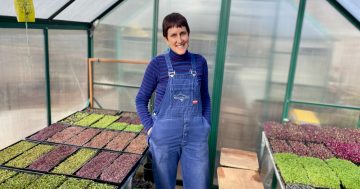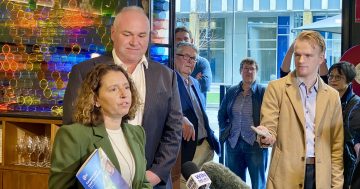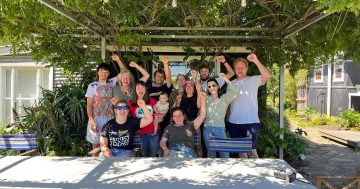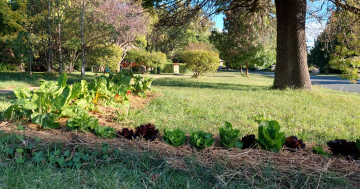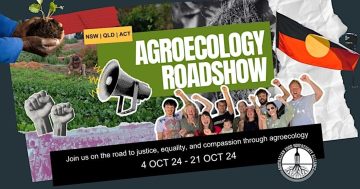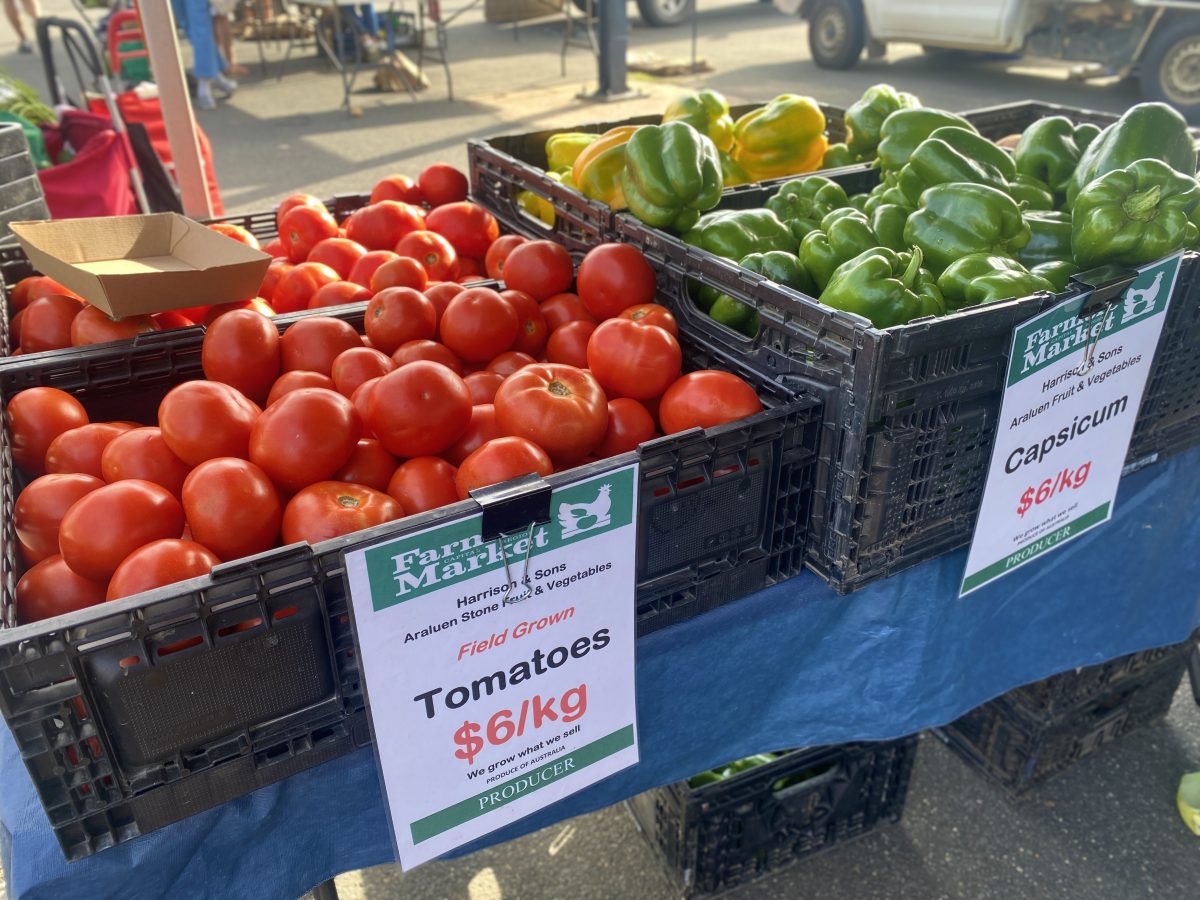
Representatives from the local food and farming community are discussing potential projects as part of the strategy. Photo: Lucy Ridge.
The ACT Government’s Environment, Planning and Sustainable Development Directorate (EPSDD) is making progress on the Canberra Region Local Food Strategy, with the implementation of a community reference group.
This follows consultation beginning in 2021 with an initial discussion paper, followed by extensive community consultation on the Draft Canberra Region Local Food Strategy.
According to the subsequent listening report, the government received 116 submissions via the MySay platform and other avenues, with more than 40 interviews, workshops, and presentations. It also received more than 20 detailed submissions from individuals, volunteer-run organisations and national peak bodies.
“The strategy is the first of its kind for the ACT and will guide a new approach by the ACT Government to support and foster local food, farming and community,” said Rhian Jones, Assistant Director of Agriculture Policy and head of the community reference group.
Following the draft strategy consultation, the EPSDD has assembled a community reference group, which will inform the ongoing implementation of the strategy. The group consists of a cross-section of the community, representing a range of interests.
“The group is made up of nominated representatives from the Ngunnawal community, volunteer groups, rural landholder organisations, community councils, academia, and local farmers and food growers,” Ms Jones said.
“We have already met to begin planning of this year’s potential projects but are subject to funding commitments in the 2024-2025 ACT Government Budget.
”Our intention is that the group will continue to meet periodically to plan and prioritise future years’ projects.”

Urban farming projects – such as Fiona Buining’s Ainslie Urban Farm – are part of the community reference group. Photo: Lucy Ridge.
The listening report cited strong community support for the initial draft strategy and ongoing projects.
“The four goals of the strategy were generally accepted. Additionally, many submissions requested that specific projects or ventures be considered. These included a data gathering study to understand the Territory and local region’s food production, investigating the feasibility of a ‘food hub’ for the ACT, and developing educational material to help the community grow and choose local food.”
Further details about specific projects will remain under wraps until the directorate has secured funding in the upcoming budget, but the community reference group is optimistic about further development of this important strategy.
“We’ll announce important updates concerning the Canberra Region Local Food Strategy as it is finalised, as well as any future projects,” Ms Jones said.
The community reference group has met for an initial online session, followed by a half-day meeting in early February to discuss specific goals and projects laid out by the directorate.
Lucy Ridge is also participating in the community reference group as a volunteer representative of farmer-led civil society organisation the Australian Food Sovereignty Alliance.
Read the listening report here.












